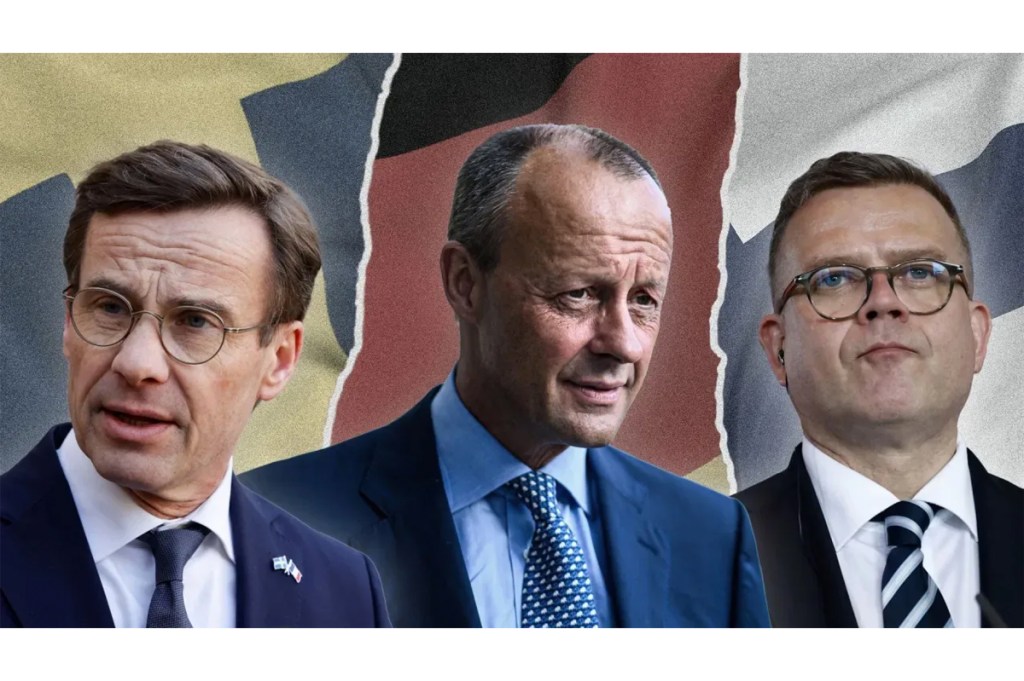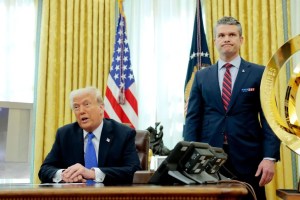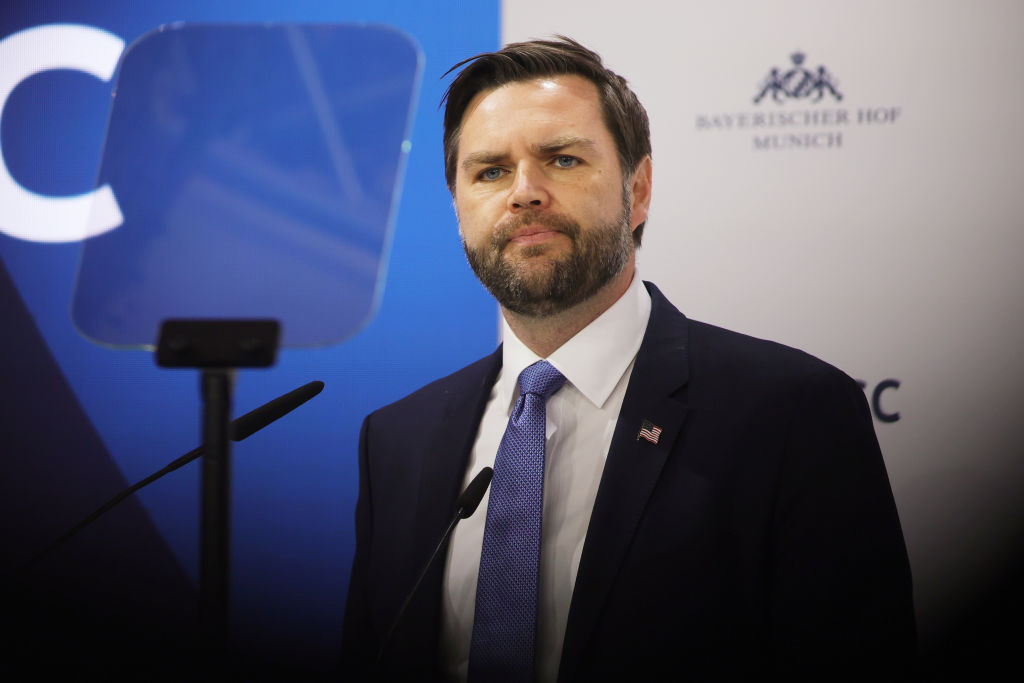Friedrich Merz, the leader of Germany’s Christian Democratic Union (CDU), dropped the bomb last weekend. In a TV interview, Merz opened the door for collaboration with Alternative für Deutschland (AfD), the nationalist-populist party that is home to Germany’s cabal of crackpots and right-wing extremists. He didn’t say what form such co-operation would take, but talked about finding ways to run local councils when the AfD won democratic elections — which happened a few weeks ago when Hannes Loth won a mayoral race in a small town in Saxony-Anhalt.
The reactions to Merz’s comments came thick and fast. Politicians from the left questioned his democratic credentials. He’s the “wrecking ball of democracy,” said Sara Nanni of the Greens. It didn’t help that Merz had ruled out any form of national — even regional — collaboration with the AfD: his own colleagues also blew off steam. Markus Söder, the powerful leader of Bavaria’s Christian Social Union (CSU) and likely candidate to lead the CDU-CSU union in the next federal election, was quick to distance himself. Kai Wegner, the dull former insurance salesman who won this year’s Berlin mayoralty, said the CDU should never collaborate with a party whose “business model is hate, division and exclusion.”
Merz clearly had an agenda. The AfD has had a string of successes in recent local elections and is polling well nationally. It’s now the second largest party in the country, consistently ahead of Olaf Scholz’s governing Social Democratic Party. Remarkably, the AfD has almost doubled its support since the last election in 2021. By contrast, Merz — a lackluster former BlackRock executive — isn’t making much headway. His Christian Democrats are sterile and visionless, still reeling from the long reign of Angela Merkel. The party hasn’t benefitted much from the government’s unpopularity, because voters rightly think the CDU is responsible for soaring energy costs and high inflation. Instead, Merz has been trying to tap into the buzz around the AfD. A few weeks ago, he talked about his own party as “the alternative for Germany with substance.”
Across Europe, the center-right have been testing the boundaries of their respective cordons sanitaires — the political demarcation against parties considered to be beyond the pale. Petteri Orpo, the leader of Finland’s conservatives, has just formed a coalition government with the Finns, a nationalist-populist party. Its neighbor Sweden has been governed since October by a liberal-conservative coalition with parliamentary support from the Sweden Democrats, which has roots in the country’s neo-Nazi movement. In the European Parliament, the center-right European People’s Party is talking about forming a right-wing bloc with Giorgia Meloni’s Fratelli d’Italia and the Polish Law and Justice Party.
There’s a logic to the new center-right strategy. Nationalists and populists are growing their electoral support: in many countries they are so big that the arithmetic of government majority makes them impossible to dismiss. They may still be seen as noisy and chaotic, with little to add to the national conversation beyond strident anti-immigration views, but these parties now offer more than puerile populism. Around Europe, they compete with the established center-right for the same voters — predominantly non-metropolitan, middle- and lower-income voters who reject open borders, net-zero policies and the new mutations of political correctness. The reality for many in Europe’s center is that there is no other path to government than to grit their teeth and partner up.
But that may not be a good strategy either. Merz’s flirtation with the AfD didn’t last long. Less than a day after the interview he had to backtrack because the internal opposition grew too big. Conservatives and nationalist-populists aren’t alike, and those in the center-right who get too close to the extremes often get burned. This week in Spain, the center-right Partido Popular did well in the national election but failed to get a majority for a right-wing bloc because voters didn’t like the idea of having Vox, a national conservative party, in government.
Italy is another example of center-right failure. Forza Italia, the party founded by the late Silvio Berlusconi, made a pact with anti-immigration nationalists a few elections ago, thinking it could bank on the support for Lega and Fratelli d’Italia to shore up a government led by the center-right. The center-right is now a small support base for the nationalist right. Who is eating whom?
The Nordic case for center-right coalitions with nationalist-populists also looks weak. Orpo’s government is under pressure after Riikka Purra, the finance minister and leader of the Finns, had to admit that she has posted racist and violent views on social media in the past. Finnish voters may be hard-skinned and used to nasty political speech, but there is a price to be paid for established parties when they take populists into government.
In Sweden, Ulf Kristersson’s government is making progress on policies of law and order but has little else to offer voters with right-wing convictions. It’s going after profit-making independent schools with an agenda that is close to the left and the populists. Pro-business reforms are absent — as are policies to strengthen civil society and communities. Tax cuts have been kicked into the long grass. Kristersson hasn’t much of a policy for cutting excessive welfare spending and growing state dependency — partly because the Sweden Democrats don’t like such policies. His suggestion to center-right-leaning voters before the last election was that they should hold their noses and accept the alliance with the Sweden Democrats: a center-right government would pursue a center-right agenda, not a populist one. Center-right voters are still holding their noses, but don’t see many of the promised results.
Merz’s Christian Democrats have a good chance of winning the next election. But they have to come up with a case that makes the center-right a clear political alternative. Nationalism is not a conservative creed: just as George Orwell observed, it’s inseparable from the hunger for state power. Now the center-right in Germany, like many of its equivalents elsewhere in Europe, is moving closer to the nationalists because it has no sure idea what it stands for any more.
This article was originally published in The Spectator’s UK magazine. Subscribe to the World edition here.

























